What Happens If You Don’t Vacuum for a Month, According to Experts
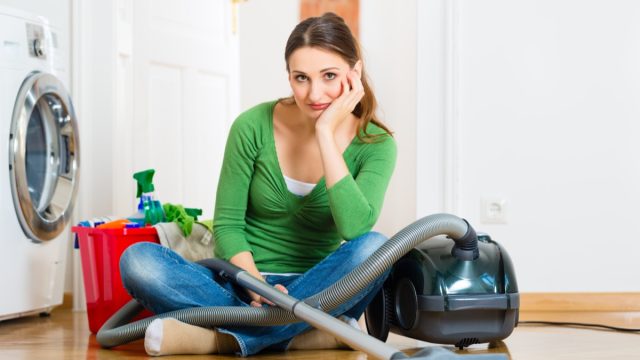
When my daughter is home from college, our vacuum gets a workout. She’s never been able to tolerate a gritty floor or dusty corner, and lucky for me, she loves to whip out our trusty Dyson and go to town on every nook and cranny. (With three cats in our small apartment, she’s got her work cut out for her.) When she’s not home, it’s a different story—which got me wondering: What would happen if a person didn’t vacuum for, say, a whole month?
Although I’ve never gone quite that long (I don’t think), I’ve definitely let things get a little too gross once or twice while she’s been away. Over the winter, I started to wonder if my near-constant fatigue, headache, and sniffles could have something to do with the state of my home, rather than being the result of a run-of-the-mill virus or seasonal blues.
Could not vacuuming often enough actually put your health at risk? I turned to experts for answers. Read on to find out what they said.
READ THIS NEXT: What Happens If You Don’t Wash Your Sheets Every Week, Doctors Say.
A layer of dust will settle over your home.
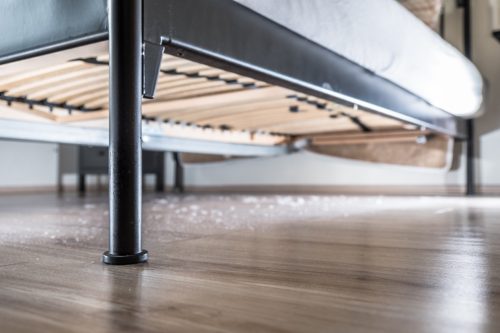
If you don’t vacuum for a month, your home is going to get dusty. This may seem obvious, but did you ever stop to think about what dust actually is?
“Dust is a complex mixture of substances, including particles of skin, hair, fabric, bacteria, viruses, and even microscopic mites,” Chris Coleman, of the air purifier maker DH Lifelabs, tells Best Life. “These particles can become airborne when disturbed and can pose various health risks, particularly for individuals with allergies, asthma, or other respiratory conditions.”
Delah Gomasi, the CEO of Sydney-based housecleaning company MaidForYou, adds that not vacuuming “means more dust mites in your furniture, upholstery, and linen, which has the propensity to cause respiratory problems.”
READ THIS NEXT: What Happens If You Drink Out of the Same Water Glass for a Week, According to Doctors.
You may start sniffling and sneezing.
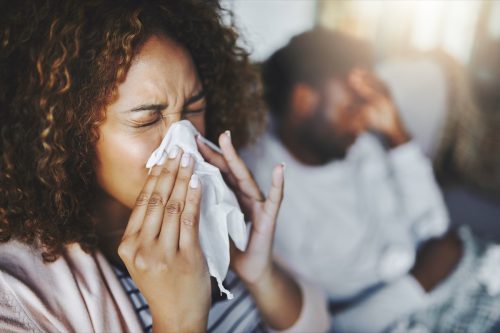
Again, it stands to reason that spending time in a dusty environment may cause you to sniffle and sneeze—but Tim Jankowski, president of Aladdin’s Cleaning & Restoration, echoes Coleman in pointing out that for those who have asthma or allergies, this is of greater concern.
“One of the biggest issues [with not vacuuming] will come down to potential allergens,” he says. “As dust and other outside irritants (pollen, mold, etc.) come into the home from outside, they become trapped in the carpet fibers, which can cause allergies and asthma to flare up.”
According to the Mayo Clinic, symptoms of a dust mite allergy may include sneezing, runny nose, nasal congestion, an itchy mouth and throat, and facial pressure and pain.
You’ll risk a carpet beetle infestation.
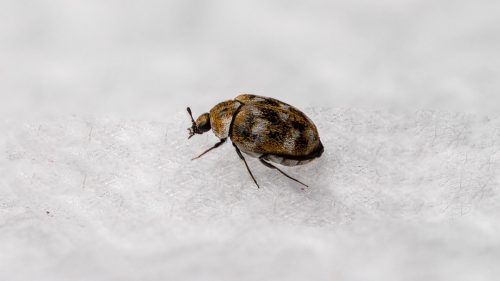
Jankowski brings up another reason to be vigilant about your housecleaning routine: carpet beetles. “These can become a nasty infestation over time if you aren’t regularly vacuuming your carpets,” he says. “They can then quickly spread to other fabrics like upholstery or clothing, causing damage, and are a general risk for infections.”
What exactly is a carpet beetle? As a person who has always lived with hardwood floors, I’ve been blissfully ignorant.
“Carpet beetles are common in dwellings, and their damage is often mistaken for that of clothes moths,” the entomology experts at the University of Kentucky write. They say that the small (adults are less than an eighth of an inch long), oval-shaped insects may lay eggs in rugs, air vents, and ducts, and even in those dust bunnies lurking behind doors and around baseboards.
In other words, my hardwood floors will not protect me!
For more health news sent directly to your inbox, sign up for our daily newsletter.
Experts recommend vacuuming weekly—or more.
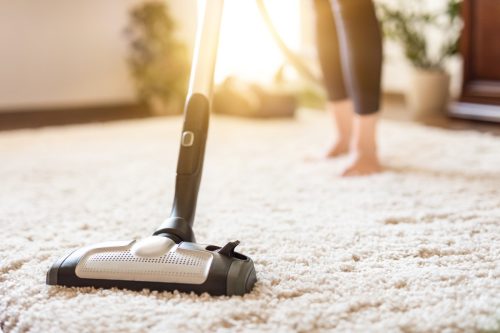
So, how often should we be vacuuming? There’s got to be a happy medium between my daughter, who vacuums roughly 37 times a day (OK, I exaggerate—but not by much) and me, who gets the vacuum out when I mistake a dust bunny for one of our cats (again, a slight exaggeration).
“We recommend vacuuming carpet at least once weekly, and using a carpet shampooing system or service at least quarterly,” says Jankowski. While I don’t have carpet, I do have rugs—and a hardwood floor attachment for my Dyson—and I think I do probably use it at least weekly. Whew!
I also have air purifiers throughout my home. Does that make a difference? “While air purifiers can help, they should be seen as a supplement to regular cleaning, not a replacement,” Coleman tells me. “Regular vacuuming, dusting, and cleaning are still crucial in maintaining a healthy home environment.”
Thank goodness the school year is over and my vacuum-loving kiddo will be home soon.
Best Life offers the most up-to-date information from top experts, new research, and health agencies, but our content is not meant to be a substitute for professional guidance. If you have health questions or concerns, always consult your healthcare provider directly.